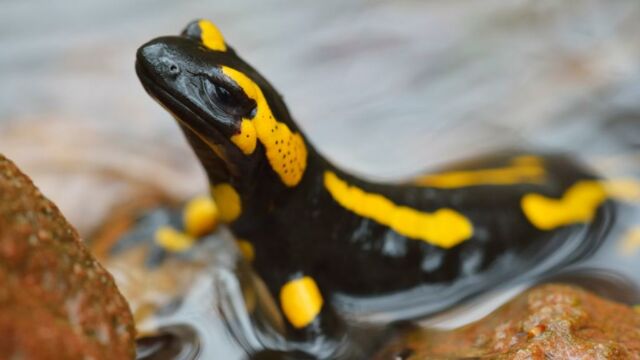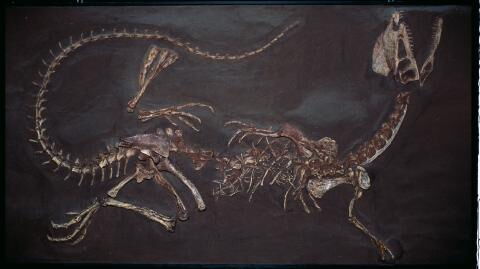Just recently, researchers discovered fossils belonging to salamanders on the Isle of Skye in Scotland. After studying these fossils, it turns out that they belong to some of the world’s oldest salamanders, but there’s a twist.
Discover our latest podcast
The salamander fossils
London university UCL led the research on the Isle of Sky. There, they studied 166-million-year-old fossils from an animal called Marmorerpeton, as reported by the BBC.
The team posted their findings in Proceedings of the National Academy of Sciences. They believe the fossils they have found of the Marmorerpeton are some of the oldest salamander fossils discovered in Europe.
New paper on new species of Middle Jurassic Salamander from Skye, Scotland reveals early evolution of salamanders! Jones et al. PNAS. Thread 👇 #Marmorerpeton#salamanders#amphibians#Scotland#Jurassic [1/11 ] https://t.co/rQXPbQ1GyQ
— Marc Jones (@MarcEHJones) July 12, 2022
Image by Brennan Stokkermans: pic.twitter.com/gEUhWTHbKt
But what makes these fossils different from today’s salamanders?
Not the same species
As BBC reports, the salamander fossils researchers found aren’t of the same species as the salamanders we know today.
Indeed Dr Marc Jones, of UCL, said:
The fossil is definitely a salamander, but unlike anything alive today.
It highlights the importance of the fossil record for preserving combinations of anatomical features that do not exist in any living animal.
Salamanders are a type of amphibian known for their ability to regrow limbs and organs. The fossils found on the Isle of Skye suggest these Middle Jurassic animals had a wide, shallow, frog-like head but powerful jaws and distinctive, prominent projections behind the eyes.
Read more:
⋙ Skeletal remains of the oldest 'European' in history discovered by researchers
⋙ Europe’s largest dinosaur may have been found in Britain
⋙ The world's largest water lily species has been under our noses for over 170 years (PHOTOS)















